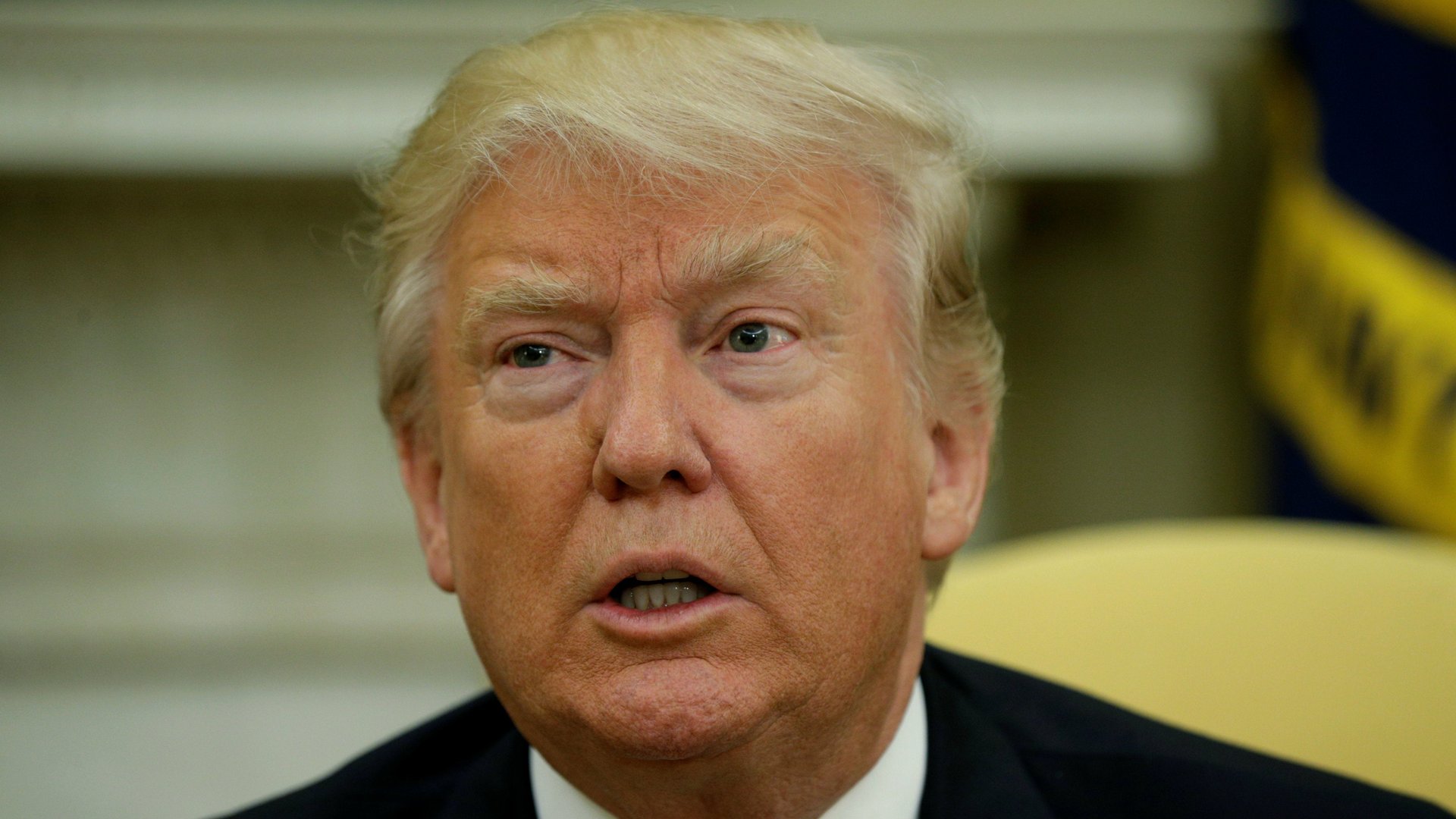The three biggest economic errors in Donald Trump’s interview with The Economist
US president Donald Trump sat down for a discussion about economics with editors from The Economist. It revealed that “Trumponomics” is not entirely grounded in reality.


US president Donald Trump sat down for a discussion about economics with editors from The Economist. It revealed that “Trumponomics” is not entirely grounded in reality.
In the course of a wide-ranging interview which touched on trade, immigration, and tax reform, and health care, Trump made three particularly strange statements—not counting curious asides about the quality of roses in the White House garden vis-a-vis infrastructure spending, and migratory bird patterns by way of tax deductions—that belies his claims to understand economics.
1. China’s currency manipulation
“Now, with that in mind, he’s representing China and he wants what’s best for China. But so far, you know, he’s been, he’s been very good. But, so they talk about why haven’t you called him a currency manipulator? Now think of this. I say, “Jinping. Please help us, let’s make a deal. Help us with North Korea, and by the way we’re announcing tomorrow that you’re a currency manipulator, OK?” They never say that, you know the fake media, they never put them together, they always say, he didn’t call him a currency [manipulator], number one. Number two, they’re actually not a currency [manipulator]. You know, since I’ve been talking about currency manipulation with respect to them and other countries, they stopped.”
The Economist asked Trump about his negotiating tactics in regards to free trade agreements. He responded by discussing an edifying encounter he had with Chinese president Xi Jinping about the history of China, which led into this whopper about China’s currency manipulation.
Throughout his campaign for president, Trump repeatedly referred to his belief that China was artificially keeping the value of the yuan low, thus making it harder for US manufacturers to compete with cheap imports. While this was once the case, it has not been for almost a decade. In fact, these days the Chinese government is selling its currency reserves to prop up the value of the yuan.
2. The value added tax
“Part of the problem with NAFTA is that Mexico’s a VAT. So Mexico is paying almost…we pay 17%. So we are now down 17%, going into Mexico when we trade. So that’s like, you have a football team and every time they play a game, they’re down, you know, 25 points. How can you possibly do good?”
In response to a question about tax reform, specifically whether he would consider introducing a value added tax (VAT) in the US, Trump said that Mexico’s use of a VAT was one reason why the North American Free Trade Agreement (NAFTA) is such “a horrible one-sided deal.”
VAT is a tax that is imposed at every stage of a product’s creation, rather than just at the final sale. The US is a laggard in not adopting a VAT—90% of countries have some form of it. It’s considered one of the least distortionary of taxes, and its design mitigates tax avoidance.
Economists agree that VAT is not a form of trade protection, and the World Trade Organization has no issues with countries using a VAT to tax consumption. Just like the sales tax in the United States, VAT does not treat imports or domestically produced goods differently. Even if “Mexico’s a VAT,” as Trump puts it, this is not an issue when it comes to cross-border trade.
3. America’s tax burden
“…It’s OK if the tax plan increases the deficit?It is OK, because it won’t increase it for long. You may have two years where you’ll…you understand the expression “prime the pump”?
Yes.We have to prime the pump.
It’s very Keynesian.We’re the highest-taxed nation in the world. Have you heard that expression before, for this particular type of an event?
Priming the pump?Yeah, have you heard it?
Yes.Have you heard that expression used before? Because I haven’t heard it. I mean, I just…I came up with it a couple of days ago and I thought it was good. It’s what you have to do.”
No part of the interview is likely to get more coverage than Trump’s bizarre claim to have coined the phrase ”prime the pump,” which has been in use for over 80 years. In the midst of him revealing this linguistic invention, the president repeated his incorrect belief that the US is the “highest-taxed nation in the world.”
For a wealthy country, taxes in the US are actually quite low. Tax revenue as a percentage of GDP was 26% in 2015, well below the 40% collected in places like Italy, France, and Denmark. Perhaps Trump was referring to America’s relatively high corporate tax rates, but even these are far from the highest in the world after accounting for deductions.